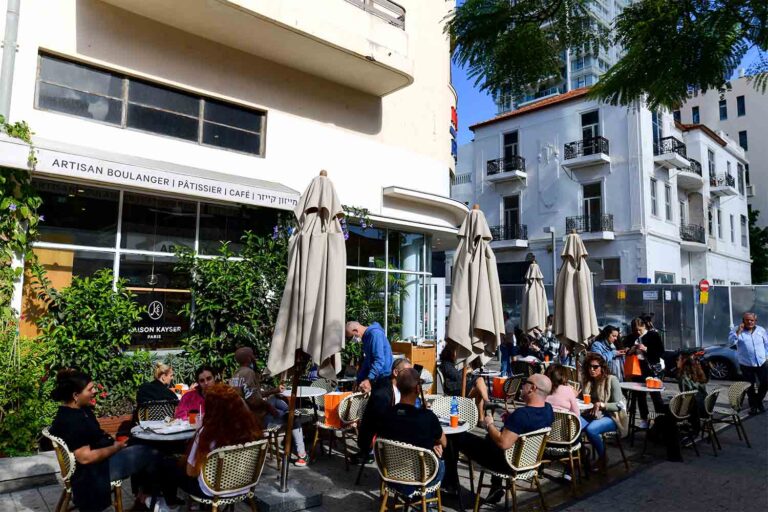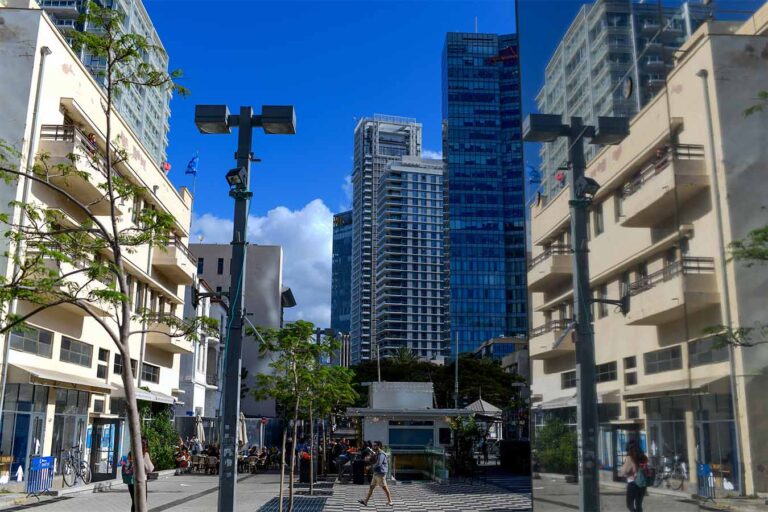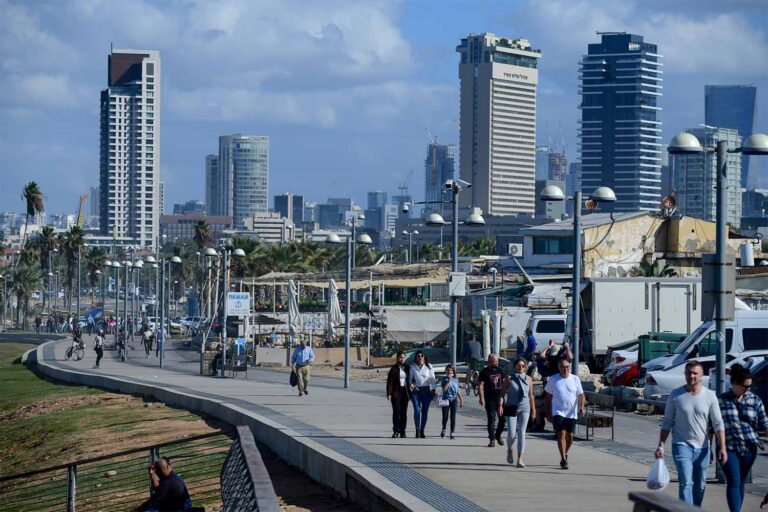
“Unfortunately for us, one day we woke up and found out that we were living on top of a gold mine,” said Levana Ratzabi, on the eve of her evacuation from the Givat Amal neighborhood in north Tel Aviv.
Following a court order, Givat Amal residents were recently evacuated by police officers from their low-income and traditionally Mizrahi neighborhood. This came in the wake of a 16-year long legal battle, and months of pitched protesting. Ratzabi’s words are particularly harrowing in light of reports that Tel Aviv is now the most expensive city in the world.
The latest results of The Economist’s “Worldwide Cost of Living,” a twice-yearly survey that compares prices of products and services in 173 cities globally, suggest that Tel Aviv has now taken first place as the world’s most expensive city, edging out Paris. The index was originally used by multinational companies to estimate the cost of employment of workers around the world, but in practice, it has become the index for the global cost of living.
The strengthening of the shekel in recent months has apparently propelled Tel Aviv to a precarious first place. But that is not the only reason for this change in status. Tel Aviv really is expensive, and getting more expensive by the day. First, third or fifth place doesn’t make much of a difference; the first Hebrew city is becoming a city for the rich, and for the rich alone.

“For care service workers, it is difficult to live in Tel Aviv or Ra’anana,” acknowledged Ephraim Malkin, Deputy Head of Wages and Labor at the Finance Ministry. In a hearing last week, Malkin compared Tel Aviv to Silicon Valley, where service workers cannot afford to live.
With a gross salary of 6,500 shekels ($2,000) on average, a caregiver will have a hard time renting an apartment even in the cheapest area in the southeast part of the city. An average 2-room apartment has a rent of 4,000 shekel ($1,265) per month.
“Tel Aviv is full of high-tech employees and the newly rich, there is nothing anyone can do about this,” said Barak Rosen, CEO of Canada-Israel, an Israeli real-estate company, at a conference last week. “I tell whoever asks me, ‘go buy an apartment tomorrow morning, next year it will increase [in value] by 10%.’”
Housing prices in Tel Aviv have jumped by an average of 6 to 8% in the last six months, according to Madlan, a website that helps buyers find apartments. According to experts, this is a direct result of the improving economic situation of high-tech, finance, and capital market workers. The average price of a 4-room apartment in Tel Aviv in the last quarter was 4.28 million shekels ($1.35 million), almost double that of Jerusalem (the second most expensive city in Israel).
If the rent in the southern parts of Tel Aviv is about 4,000 shekels for a 2-room apartment, the price in the city center is closer to 8,500 shekels ($2,700) for a 2-3 room apartment. 53% of the city’s tenants rent rather than buy, compared to 28% in the rest of the country.
About 45% of high-tech workers and financiers in the city earn between 17,000 ($5,400) and 28,000 shekels ($8,900) a month, making such a lease convenient for them.
Not only do service workers have difficulty living in Israel’s center, but new teachers, nursing caregivers and even novice medical staff may encounter similar difficulties. It is safe to assume that in the coming years, Tel Aviv will push these populations out.
The middle class, the backbone of the Israeli economy, will not be able to afford to live in the city. They will have to make their way every morning from the suburbs into the congested metropolis, and pay a new tax, a fee for entering the city.


The report in The Economist opens with a surprising reference: The city of Tel Aviv was named after the title in Hebrew of “Old New Land” (“Altneuland” in German), a visionary novel written in 1902 by Theodore Herzl, the founder of modern Zionism.
Perhaps the editors of the magazine also noticed an irony that reflected the profound change in the Zionist movement. From a home for the Jewish people, to a penthouse for the rich of the world.
The character of Tel Aviv is currently being shaped by market forces. The demand for living in the central city of Israel will continue to rise, as long as there are those who are willing to pay. But Tel Aviv is not Silicon Valley, a small region in the giant United States. This is the heart of the State of Israel. It is doubtful whether a situation is sustainable in which legions of low-wage workers come in every morning from other cities in order to operate Tel Aviv's hospitals, kindergartens and supermarkets.
“It’s time for solidarity between people whose homes are in danger,” said Fatima Fa’ur, a Jaffa resident who was active last month protesting rising rents in Jaffa.
Fa’ur is demanding public housing from the government that will allow her and her friends to continue living in the city where they were born, arguing that rising prices are pushing them out. Without the intervention of the state into market forces, the fabric of the major cities in Israel will change beyond recognition. Will Israeli society be able to sustain such rifts?






